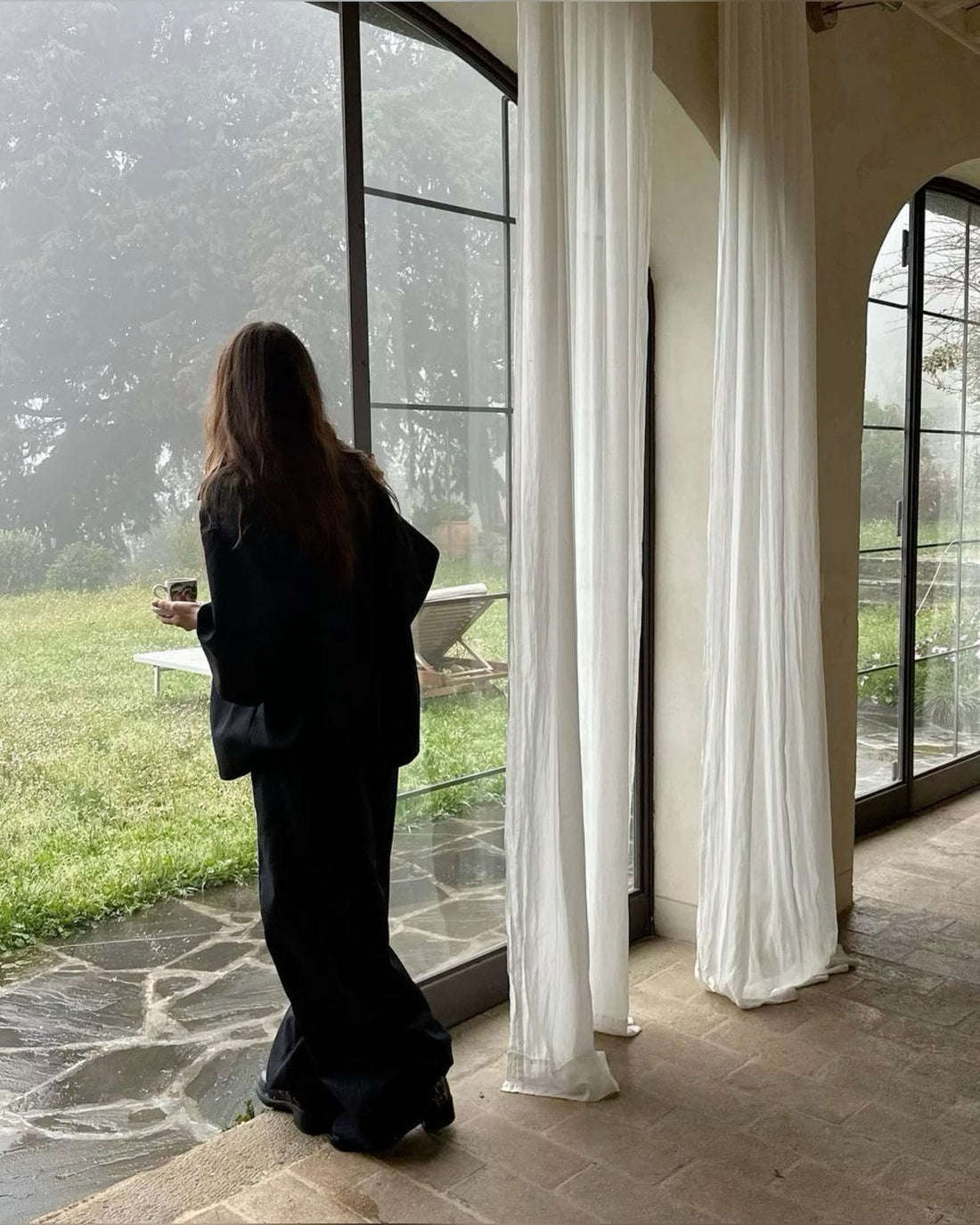
WHY THE WAY WE RESPOND MATTERS
Share

This has been a very interesting time for me, both personally and professionally. There have been so many moving parts, so many plates spinning in the air at once, and something I’ve been paying close attention to is how I respond when those plates begin to wobble. In those moments of imbalance, how am I responding to people, to challenges, to spaces, to opportunities? But most importantly, how am I responding to myself? There's a silent yet explosive power in the art of noticing this subtle shift in awareness, because one of the most impactful life hacks I've discovered on my journey is this: shifting from reacting to responding is a secret passage to peace, grace, and emotional safety. That subtle shift can be the difference between holding a sword and holding a bouquet of flowers. From clenching your fists, to opening your arms. And that contrast touches every part of life, from relationships to the quiet conversations you have with yourself when no one else is around.
Psychologically, reacting and responding are two completely different processes. Reacting is primal. It comes from the part of your brain designed to keep you safe, the amygdala. It’s fast, automatic, and often fueled by fear, anger, ego, or old conditioning. Responding, on the other hand, engages the prefrontal cortex — the part of your brain responsible for reasoning, perspective, and conscious choice. When you respond, you create space between the stimulus and your action. Space to breathe, space to think, space to choose. And that space is where your power lives.
When applied to real-world situations, this shift is transformational. Imagine being in a heated conversation at work and your instinct is to react defensively, to protect your pride. But if you take even two seconds to pause and choose your words carefully, the conversation changes. Your response can de-escalate conflict, create understanding, and build trust. Over time, this leads to stronger relationships, fewer regrets, and a reputation as someone who stays grounded under pressure.
The same holds true in personal relationships. Reacting can create cycles of misunderstanding and emotional distance, but responding opens the door for clarity and connection. Instead of lashing out when you feel hurt, you can communicate how you feel in a way that invites healing. This is where intimacy deepens and where trust grows. And it doesn’t stop there, because your self-talk benefits too. When you respond to your own thoughts with compassion rather than judgment, you break the habit of self-criticism and replace it with self-awareness. Eventually, that self-awareness leads you to a beautiful place called self-love.
In work and creativity, responding helps you move from chaos to clarity. Reacting to every challenge, notification, or perceived failure can burn you out. But when you choose to respond, you focus on what truly matters. You prioritize with purpose, protect your energy, and turn obstacles into opportunities for innovation. Responding creates better output not because you hustle harder, but because you create mental spaciousness, move with intention and alignment.
If you’re a creative, entrepreneur, thinker, builder, or simply someone out there making things happen, shifting from a knee-jerk reaction to a calm response is a game-changer. Fires are inevitable, normal, and even necessary. They’re part of the process, and they’re what make the whole thing exciting. But when you meet those flames with anger, fear, or jealousy, you’re not putting them out; you’re throwing gas on them.
When you pause, breathe, and give yourself a little space, something powerful happens. The initial trigger is replaced with clarity. Your words soften, your perspective widens, and you respond with understanding, kindness, and love. Suddenly, you’re no longer at the mercy of the fire. You’re the one controlling the stove. You decide how high the flame goes and what you want to cook. You rise from line cook to chef.
The beautiful part about this is that it’s something you can practice today. Right now. Every moment gives you the opportunity to notice your impulse, take a breath, and choose differently. Test this theory in your own life — in your next conversation, in your next challenge, in the way you speak to yourself before bed tonight. You might find that the world doesn’t change overnight, but your experience of it does. It shifts from something running silently in the background to something that steps forward into your awareness. And as your inner world transforms, your outer world naturally begins to reshape itself to match its beauty, its frequency, and its harmony.
Your friend,
Danny
